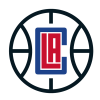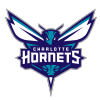Trade Grades: Clippers get Stephenson from Hornets
The Deal
Clippers get: Guard/forward Lance Stephenson
Hornets get: Forward Matt Barnes and center Spencer Hawes
Los Angeles Clippers: D

Here's the good news for the Clippers: Trading for Lance Stephenson carries almost no long-term risk. If he flops next season, L.A. can merely turn down his 2016-17 team option and walk away having shed the final two seasons of Hawes' contract.
However, for a team like the Clippers, who are trying to win now, those benefits are ancillary. The real risk here is simple: The Clippers had just six players they could count on this season, and they've traded one of them for a giant question mark.
Because of what Barnes is not -- big enough to shut down the league's best small forwards or a dangerous 3-point threat -- it's easy to forget that he is a reliable 3-and-D player. And if those are the major concerns about Barnes, well, Stephenson doesn't solve either of them.
While he's strong enough to defend many small forwards, Stephenson is two inches shorter, so he's no better equipped to deal with the Kevin Durants and Kawhi Leonards of the world than Barnes. And Stephenson's atrocious 3-point shooting last season (18-of-105, 17.1 percent, worst ever by a player with at least 100 attempts) makes Barnes' 36.2 percent accuracy look like Kyle Korver. That was an outlier season for Stephenson, but he was never in his career shot 3s as accurately as Barnes did last season.
Ideally, the Clippers would put Stephenson in a role similar to the one he occupied with the Indiana Pacers, playing off the ball with the starters and taking on a larger role as a creator with the second unit. Presumably, Stephenson will be more willing to take a back seat offensively playing with teammates like Chris Paul and Blake Griffin than he was in Charlotte. But the Clippers already have a non-point guard who demands the ball in their second unit, sixth man Jamal Crawford, and it's unclear whether this move means a Crawford trade is in the offing too.
From a financial standpoint, dealing two players for one making a nearly identical salary (Stephenson will make $9 million in 2015-16; Barnes and Hawes will make a combined $9.1 million) makes the Clippers' payroll even tighter. Filling that roster spot with a player at the veteran's minimum would end up costing L.A. an extra $850,000 or so.
That might not be a big deal if the Clippers decide to play this season as taxpayers, foregoing the larger mid-level exception they used to sign Hawes last summer and avoiding the hard cap that forced them to surrender a first-round pick to trade away Jared Dudley. Things get dicey if center DeAndre Jordan decides to leave. The Clippers' best hope for replacing Jordan might be another free agent acquired via sign-and-trade, a maneuver that would again subject them to the hard cap and make every dollar count.
To the Clippers' credit, this is certainly a very different move than those the team has made since Doc Rivers' arrival. Stephenson, who won't turn 25 until September, offers the kind of youthful upside the Clippers haven't had on the roster. (Crazy stat: Despite five years of NBA experience, Stephenson was born less than four months before 2014 Clippers first-round pick C.J. Wilcox.) If all goes well, Stephenson can be a part of the team's future for years to come, something that wasn't true of the 35-year-old Barnes.
Alas, there are more ways things can go wrong. Even if Stephenson is on his best behavior, his skill set may not prove ideal for a team that depends more on spacing than the Pacers ever did, and the wing duo of Stephenson and J.J. Redick may prove too small to handle opposing small forwards, leaving the Clippers valuing Barnes more in his absence -- much the same way they came to miss Dudley last season.
My one hesitation in grading this deal is that the Clippers have more information than I do about what they'll be able to accomplish in free agency. If they hypothetically know they can sign Paul Pierce using the taxpayer mid-level to replace Barnes and know they can flip Crawford for a backup big man, this move might make a lot more sense in a month or two. For now, however, it leaves more questions than answers.
Charlotte Hornets: B-minus

At first glance, shedding Stephenson's one year of guaranteed money for the three years left on Hawes' contract looks like a mistake, but I find myself growing more comfortable with it. If Hawes were a free agent now, it's hard to imagine him getting a contract anywhere near the $17.4 million he's due, not after a season in L.A. that was nearly as disastrous as Stephenson's with the Hornets.
At the same time, that's not really what Charlotte is paying here. Let's say the Hornets were to waive and stretch Stephenson's salary hit over three seasons, as cap specialist Mark Deeks suggests on Twitter. They'd pay $9 million over the next three seasons, meaning Hawes' marginal cost is really $8.4 million over that span and perhaps $9.4 if Charlotte elects to waive Barnes, whose 2015-16 salary is guaranteed for just $1 million. That's a reasonable price for Hawes, given the likelihood he plays better going forward than he did in 2014-15.
For a team in desperate need of adding 3-point shooting, Hawes could be a good fit as a backup center if he shoots more like he did in 2013-14 (41.6 percent from beyond the arc) than 2014-15 (31.3 percent). Realistically, he'll probably land somewhere in the middle nearer his 35.1 percent career mark, which would make Hawes a useful if flawed stretch 5.
It's unclear what Hawes' addition means to Al Jefferson's current backup, restricted free agent Bismack Biyombo, who has grown into an effective defender. Perhaps the Hornets could play both Biyombo and Hawes together off the bench next season while waiting out Jefferson's free agency in the summer of 2016, though that would make it difficult for 2014 lottery pick Noah Vonleh to crack the rotation.
Since it doesn't appear Charlotte plans to keep Barnes, it will be worth watching whether the Hornets can flip him to another team before June 30. That would keep them from having to pay the $1 million Barnes is guaranteed, and at $3.5 million he's a good value for a contending team as a backup wing.